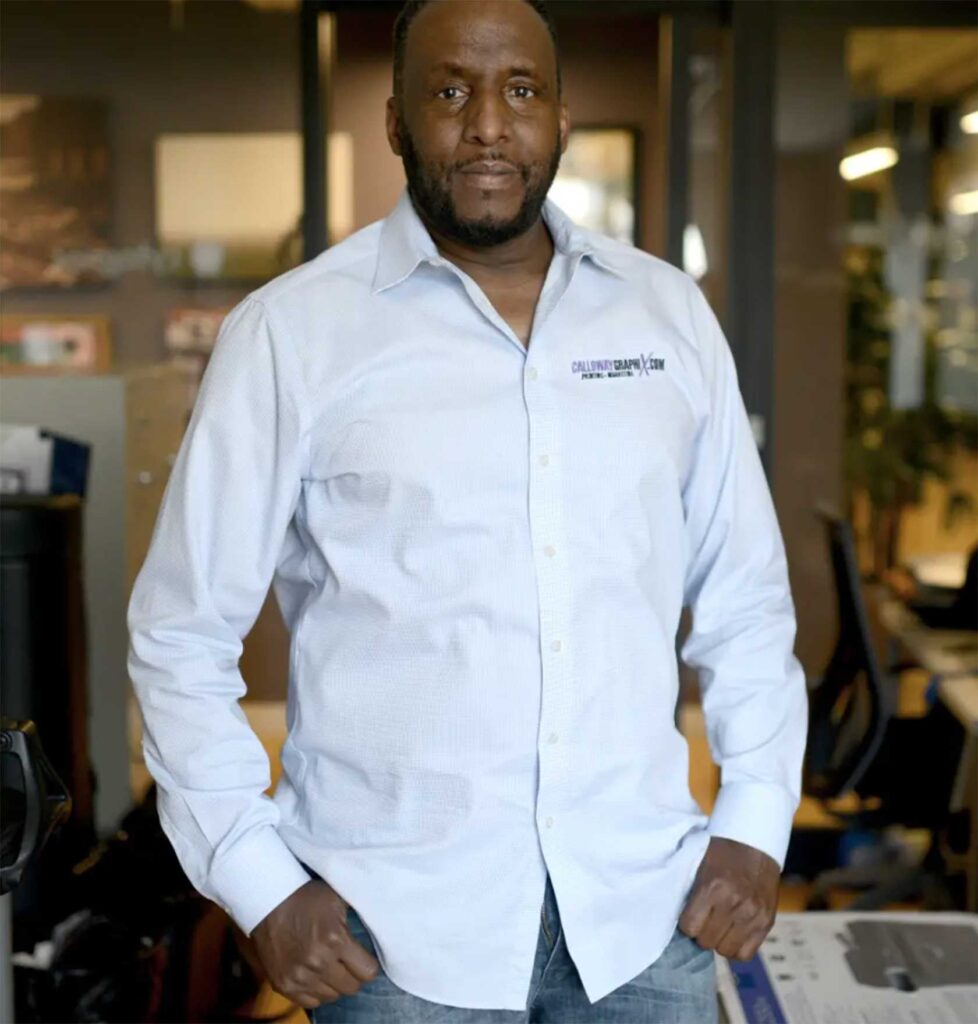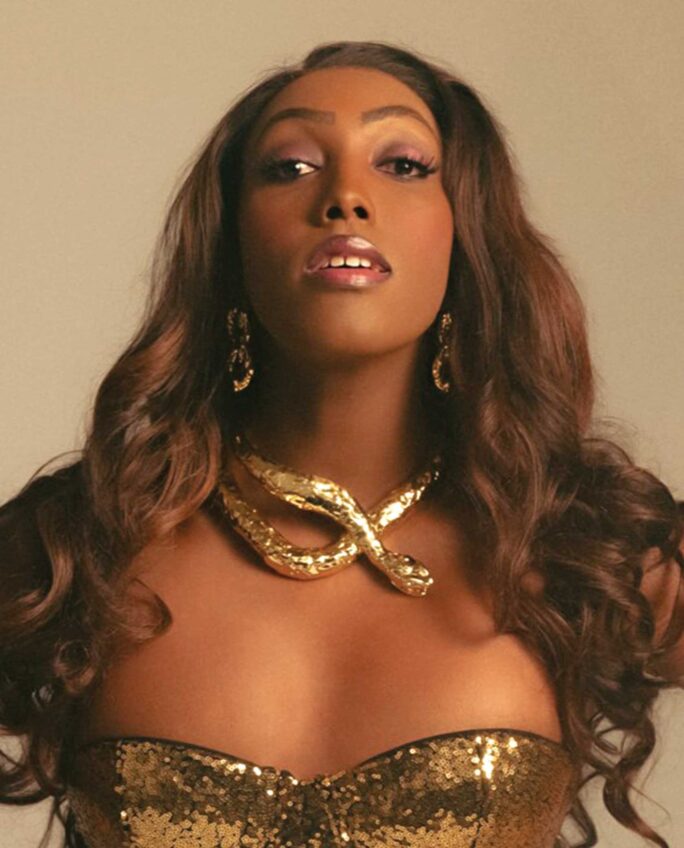
Banner Business Sponsored by The Boston Foundation
After a successful career as an entertainment promoter for celebrities such as Prince and Destiny’s Child, Terryl Calloway realized that all of these artists had one practical need in common: They relied on print shops for their marketing flyers.
And so, 25 years ago Calloway found a new groove, launching Calloway Graphix on Newbury Street. He locked down the Boston market, printing hundreds of thousands of flyers each week, for nightclubs and other events.
“I learned through my experience as a promoter that all of these artists needed printing in one format. You could print a job rather quickly … send a job anywhere in the country through email and get a job done within three business days,” he said.
Calloway eventually expanded his services into event planning, marketing and graphics.
“I started to expand my services into, you know, doing events and doing printing for Harvard and for mostly the Black organizations on college campuses. So, it really grew into an expanded business, because everybody had a need for printing in one way or form, from a simple business card to a poster to any kind of reporting or fast copying. I found a niche,” he said.
Calloway said that most of his business clients were churches, educational institutions and nonprofit organizations, which allowed him to find his unique place at the intersection of marketing and events.
“A lot of them knew about printing, but they didn’t know how to market their events. … My experience as a marketing person for entertainers and my own stuff, I was able to offer that as a consulting service to all my clients, who not only wanted their stuff printed, but they wanted to know how they could get it out to the community,” he said.
He also said that he was in business during the time that email was just coming into popularity and before the rise of social media.
“I understood through the technology that I could be more than a print business. I could source my material from anywhere in the country and be able to offer different products in the local market. [I] was offering posters, banners — just a lot of things [that] were done a lot cheaper outside of Boston, without closing my business model,” he said.
Although Calloway has been successful with his enterprise, he is now focusing on the future and looking to continue to give back to the community the skills he has acquired in business development and entrepreneurship.
“The future [for] me is to give back to the community all that they have given me in the many years of providing them with entertainment, business opportunities, and just knowledge about business — how to do it, how to be a successful entrepreneur,” he said.
He credits his mother, Carol Calloway, with instilling a strong sense of faith and a desire to give back to the community.
“It’s something that my mother ingrained in me as a young person. … She’s a strong believer in God and she raised me and my sisters to do the right thing,” he said. “Early, my mother made sure she instilled that in me, and I understood through that, having to go to Sunday school, having to go to church on Sunday, that discipline of understanding what’s right in your life, and that is the path that I chose.”
He also acknowledges the Black men who mentored him toward becoming an entrepreneur while he was growing up.
“I was very lucky…to have Black men in my life that were doing things and showed me that there was a path to success without having to turn to crime, engage in things that were bad. … So I was able, at a young age, to understand through mentorship what was right and wrong,” he said.
Calloway also credits the community for helping him through difficult times with his health. The four-time brain surgery survivor discovered a tumor on his brain in his 40s, which explained why he suffered from headaches all his life.
“That’s what keeps me going … part of my disability is I suffered three strokes, so I can’t read from my strokes anymore and I’m blind in one eye,” he said. “Anytime you have brain surgery, the risk of any type of brain surgery is stroke. I suffered multiple strokes during my operation, which in some cases you hear about people not able to move anymore,” he said.
Calloway’s already passing his skills on to the next generation, working with his former high school, Madison Park High, which is now a career school with a printing department. He is helping the school expand their offerings, so the students have access to a more comprehensive, multimedia approach when choosing their careers.
He has some advice for Black entrepreneurs and other entrepreneurs of color who may want to build their own businesses.
“Number one, think about it. Number two, pray about it. Number three, plan about it. Number four is do about It. Do about it now. No procrastination,” he said. “Once they have done that, I would tell them only to do it 10 times. After 10 times, change your course or direction. Many people get caught up doing the same thing, the same way, the same results, and they live an insane life. … That’s the wisdom I give to everybody.”








Leave a Reply
You must be logged in to post a comment.